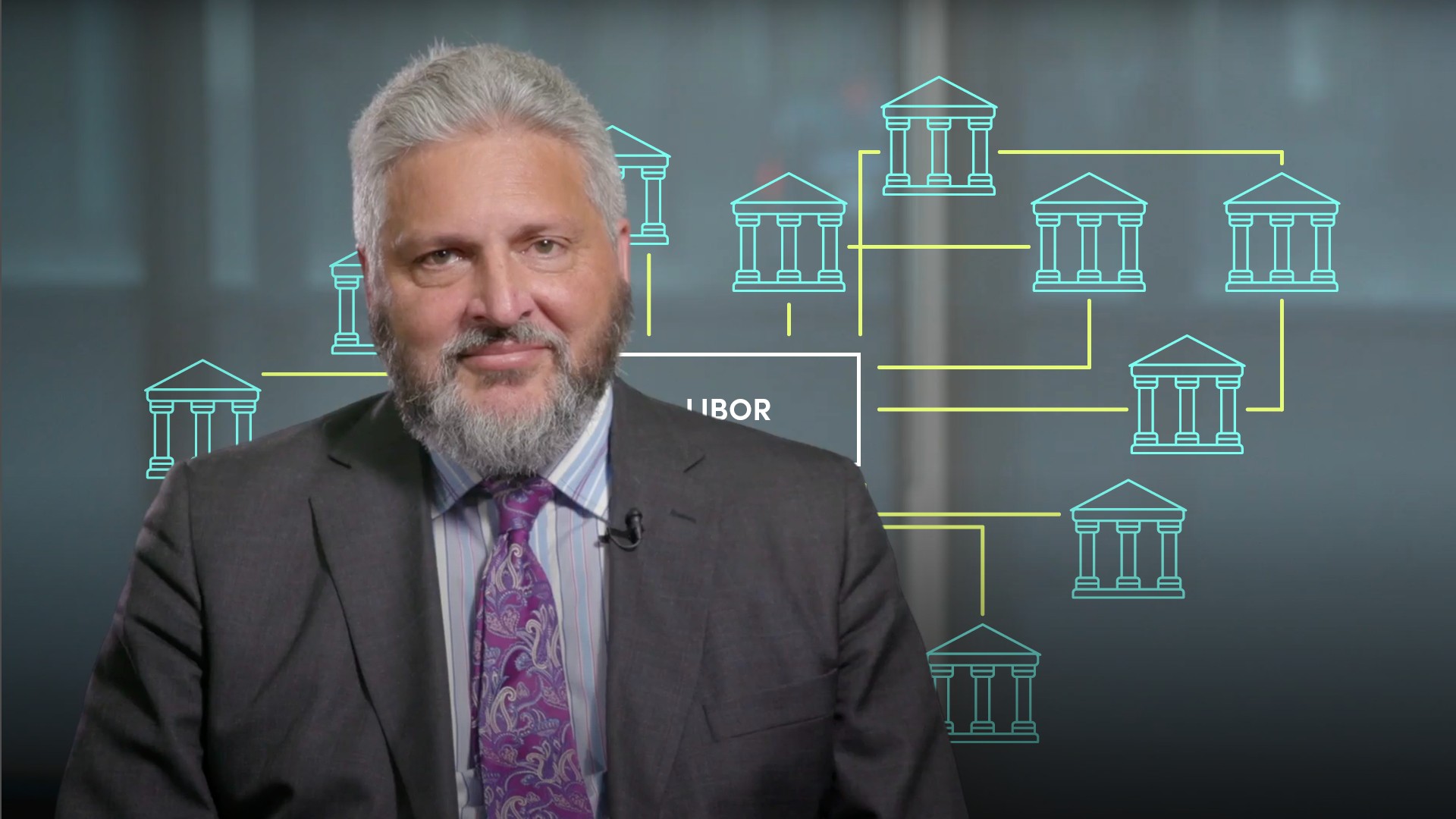
Early Market Reception to Risk-Free Rates

Keith Mullin
35 years: Capital markets editorial
Keith highlights the intended transition from LIBOR to SOFR, an alternative risk-free rate. However, associated with this transition is a wide range of reluctance and objections, many of which are discussed within the video. Some of which include - uncertainties regarding how the new rate will work overtime and arguments from mid-sized US banks about the 'one size fits all' approach.
Keith highlights the intended transition from LIBOR to SOFR, an alternative risk-free rate. However, associated with this transition is a wide range of reluctance and objections, many of which are discussed within the video. Some of which include - uncertainties regarding how the new rate will work overtime and arguments from mid-sized US banks about the 'one size fits all' approach.
Subscribe to watch
Access this and all of the content on our platform by signing up for a 7-day free trial.

Early Market Reception to Risk-Free Rates
16 mins 34 secs
Capital markets activity linked to the Secured Overnight Financing Rate (SOFR), the US risk-free rate (RFR) chosen to replace Libor, has evolved ahead of RFR activity in other jurisdictions. But transition has been dogged by inertia and a certain amount of reluctance from market participants. Uncertainties abound with regard to operational aspects of transition and how RFRs will work over time. Debt issuance linked to or referencing RFRs should pick up as issuers, trade bodies and service providers issue an array of debt, launch new tools and products and inaugurate new structures.
Key learning objectives:
Identify the factors slowing the switch to risk-free rates
Outline the objections to SOFR expressed by a group of mid-sized US banks in February 2020
Understand the factors that will help issuance of debt, issuance linked to RFRs or referencing RFRs
Subscribe to watch
Access this and all of the content on our platform by signing up for a 7-day free trial.
What are some of the factors slowing the switch to risk-free rates?
- How the new rates will actually work over time
- Will contracts and documentation need to be updated or novated?
- Will consent solicitations be required?
- How will differences between UK and New York law play out?
- How will the market take to a switch from forward-looking to backward-looking rates?
- How will the switch to risk-free rates affect funding levels?
What were the objections to SOFR expressed by a group of mid-sized US banks in February 2020?
- The one size fits all approach may not be the most appropriate
- SOFR is an appropriate benchmark for larger banks that have access to collateral and the ability to operate across secured markets
- Many smaller banks do not have large holdings of US government securities so can only borrow on an unsecured basis creating an asset-liability mismatch
- Multiple reference rates will pave the way for a smooth transition away from Libor.
- Ameribor, an interest-rate benchmark derived from the weighted average of actual unsecured transactions on the American Financial Exchange, represented a more appropriate benchmark
What will help issuance of debt, issuance linked to RFRs or referencing RFRs?
- Issuers get more comfortable with issuing RFR-linked deb
- Trade bodies and service providers launch new tools
- New products are rolled out
- New structures are inaugurated
Subscribe to watch
Access this and all of the content on our platform by signing up for a 7-day free trial.

Keith Mullin
There are no available videos from "Keith Mullin"






















